event
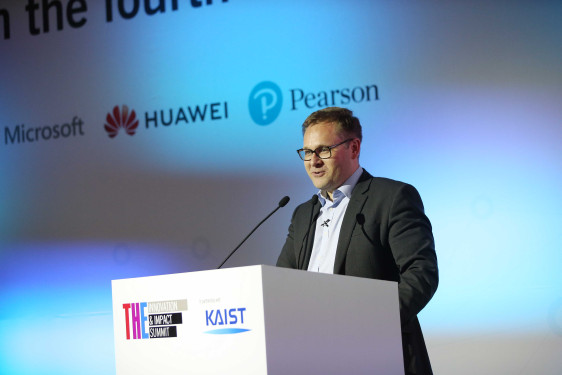

(from left: Lino Guzzella, former ETH Zurich President and Sung-Chul Shin, KAIST President)
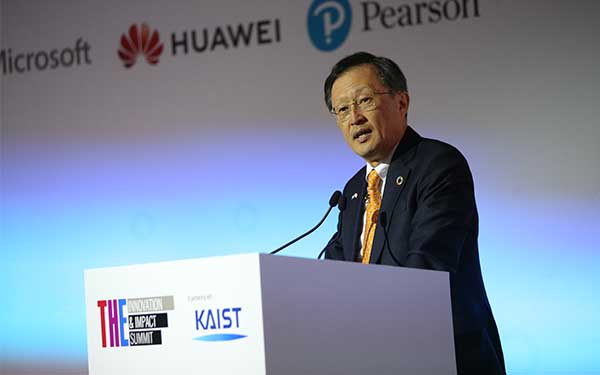
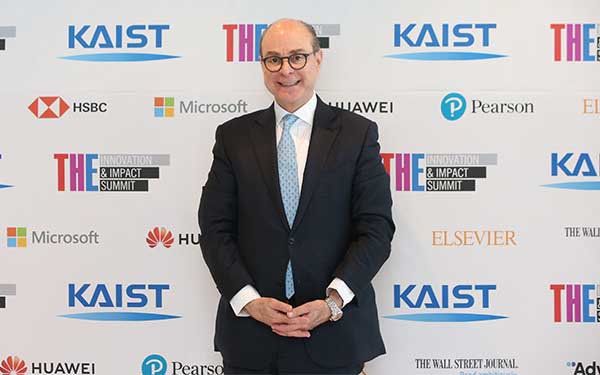
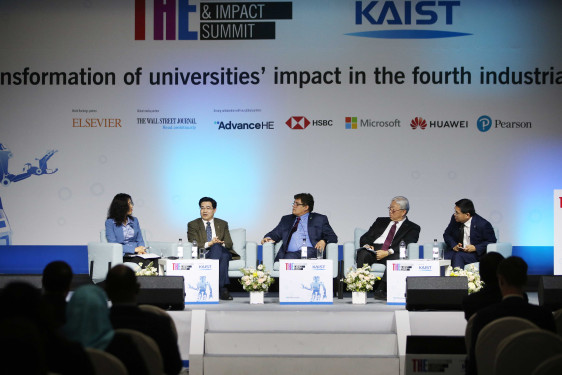
(from left: So Young Kim, Guohua Chen, Aqil Jamal, Mooyoung Jung and Max Lu)
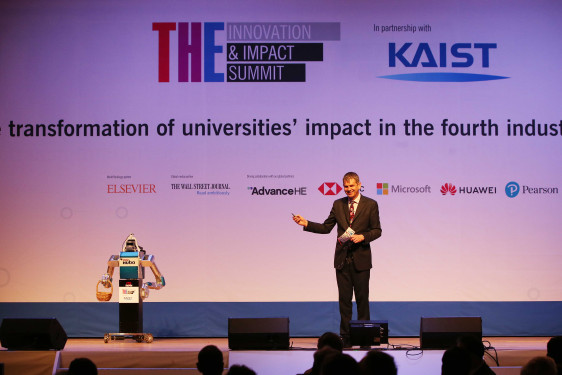
-
event Upbeat Message for a New Future at President Lee’s Inauguration
KAIST’s 17th President Kwang Hyung Lee reaffirmed his commitment to building a new future preparing for the post-AI era during his inauguration on March 8. The Board of Trustees selected the former provost and executive vice president as the new president, succeeding 16th President Sung-Chul Shin whose four-year term expired last month. In his inaugural address, President Lee proposed a new culture strategy, ‘QAIST’ designed to foster more creative talents and ensure innovat
2021-03-09 -
event Top University Leaders Urge Innovation for the Post-COVID Era at the KAIST Summit
- Presidents of KAIST, MIT, Tokyo Tech, and Northwestern to define new roles and responsibilities of universities for the post-COVID and 4IR eras during an online summit in celebration of KAIST’s 50th anniversary. - Universities are facing ever-mounting pressure to address impacts brought on by COVID-19 and the emerging technologies of the Fourth Industrial Revolution (4IR). Presidents from MIT, Tokyo Tech, and Northwestern University will join the KAIST Summit to explore new direction
2021-02-01 -
event Big Ideas on Emerging Materials Explored at EMS
Renowned scholars and editors from academic journals joined the Emerging Materials e-Symposium (EMS) held at KAIST and shared the latest breakthroughs and big ideas in new material development last month. This e-symposium was organized by Professor Il-Doo Kim from the KAIST Department of Materials Sciences and Engineering over five days from September 21 through 25 via Zoom and YouTube. Professor Kim also serves as an associate editor of ACS Nano. Esteemed scholars and editors of academic journ
2020-10-06 -
event Life After COVID-19: Big Questions on Medical and Bio-Engineering
KAIST GSI forum explores big questions in the medical and bio-engineering revolution caused by the COVID-19 in fight against infectious diseases and life quality On September 9, the Global Strategy Institute at KAIST will delve into innovative future strategies for the medical and bio-engineering sectors that have been disrupted by COVID-19. The forum will live stream via YouTube, KTV, and Naver TV from 9:00 am Korean time. The online forum features a speaker lineup of world-re
2020-09-04 -
policy Korea Policy Center for the Fourth Industrial Revolution Opens
The World Economic Forum’s Center for the Fourth Industrial Revolution opened its Korean affiliate center at KAIST on December 10. The Korea Policy Center for the 4th Industrial Revolution (KPC4IR) will develop policy norms and frameworks for accelerating the benefits of emerging technologies. Many dignitaries including KAIST President Sung-Chul Shin, National Assemblyman Sang-Min Lee, Daejeon City Mayor Her Tae-Jeong, and Managing Director of the WEF Center for the Fourth Industrial
2019-12-10